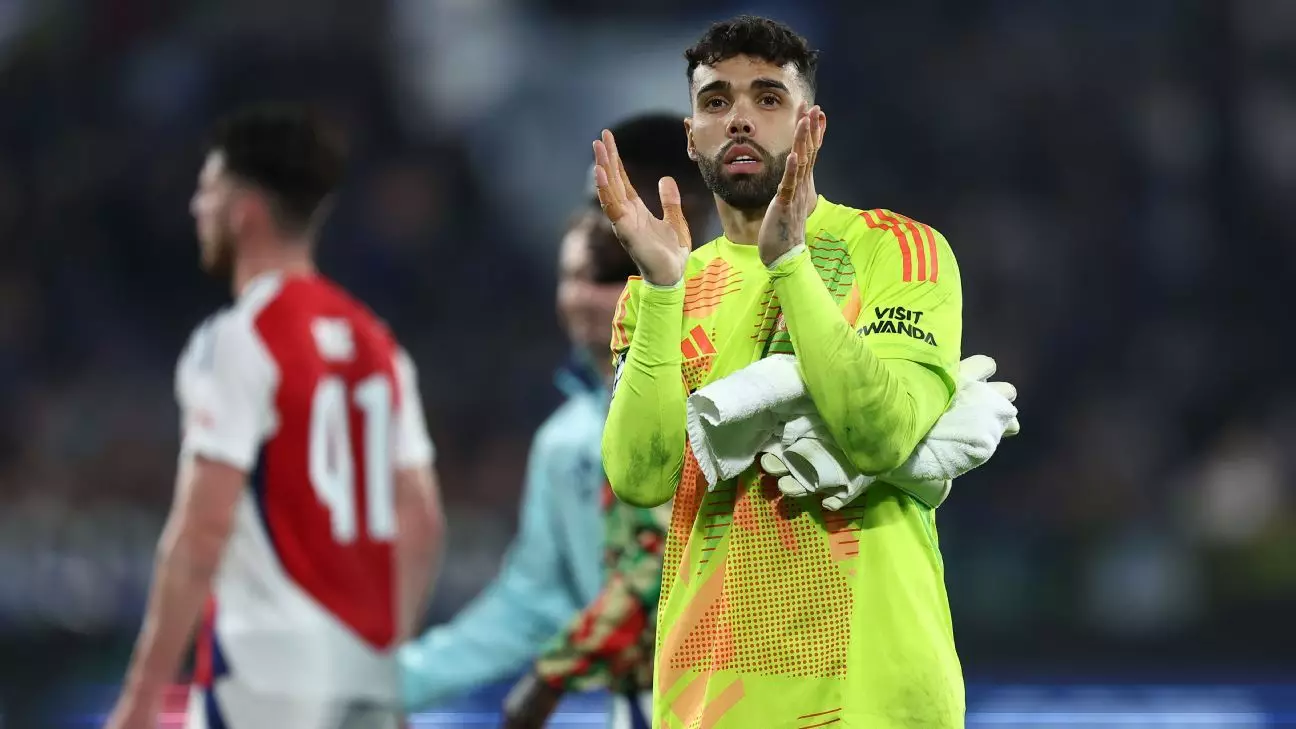In an intense opening to their Champions League campaign, Arsenal faced Atalanta at the Gewiss Stadium in Bergamo, culminating in a goalless draw that left much to be desired from both teams. The match on Thursday night did not live up to the anticipation, as fans were treated to a defensive showcase rather than an offensive spectacle. While the outcome secures Arsenal a point away from home, it raises critical questions about their attacking prowess and strategic execution as they embark on a challenging European journey.
The first 45 minutes of the match were characterized by a lack of creativity and urgency. Arsenal’s attacking display was hampered by a series of misfires and missed connections. The highlight of the half was a free-kick from Bukayo Saka that forced a routine save from Atalanta’s goalkeeper, illustrating the Gunners’ struggles to formulate meaningful offensive opportunities. Gabriel Martinelli, another key player for Arsenal, had a promising chance but failed to trouble the keeper as his shot sailed over the bar. As the teams retreated to the locker rooms, it was evident that both were simply analyzing their opposition rather than committing to offense.
The landscape of the match shifted dramatically early in the second half when Thomas Partey conceded a penalty. However, the moment quickly turned into a narrative of resilience for Arsenal, as goalkeeper David Raya emerged as the standout player of the night. Demonstrating exceptional reflexes, Raya not only saved the penalty taken by Mateo Retegui but also denied the rebound, showcasing the kind of larger-than-life performances that can turn games around. This pivotal moment not only maintained the equilibrium of the scoreline but also instilled a renewed sense of confidence in the Arsenal camp.
Despite Arsenal’s defensive solidity, Atalanta found brief moments of encouragement as they sought to capture the lead. Veteran Juan Cuadrado threatened the Gunners with two powerful shots from distance that were ultimately off target. The home side’s continued probing highlighted the necessity for Arsenal to remain vigilant, as they could not afford another lapse in concentration. Arsenal’s strategy seemed to revolve around a disciplined back line, but the lack of midfield dynamism began to unearth cracks in their approach.
As the match progressed without a breakthrough, Arsenal’s ineffectiveness in creating goal-scoring opportunities became increasingly glaring. One of the most frustrating moments for the Gunners came when Martinelli, after being set up beautifully by Raheem Sterling, blasted the ball over the bar from a promising position. This miss encapsulated Arsenal’s troubles: while they demonstrated industrious play and occasional glimpses of attacking intent, their execution in the final third left much to be desired.
Mikel Arteta’s decision-making over the course of the match deserves scrutiny. While he made timely substitutions, notably bringing on Raheem Sterling, the overall impact on the game was minimal. The Gunners appeared to adopt a more cautious approach as the match wore on, seemingly content to escape with a point rather than push for victory. The absence of a more vibrant attacking strategy might leave fans wondering if Arteta’s squad is equipped to compete on multiple fronts in Europe this season.
In evaluating individual performances, David Raya emerged as the clear man of the match with his pivotal saves. His alertness kept the clean sheet intact and allowed Arsenal to escape with a point. Other players, such as William Saliba and Declan Rice, also exhibited strong performances, effectively neutralizing threats and providing stability. In contrast, offensive players like Bukayo Saka, Gabriel Jesus, and Martinelli struggled to make any significant impact, reflecting a collective challenge that must be addressed if Arsenal hopes to progress.
While securing a draw against Atalanta—last season’s Europa League winners—can be viewed as a positive result, it nonetheless highlights the necessity for improvement, particularly in attacking fluidity. Arsenal’s inability to convert chances and command possession presents a problem that could hinder their ambitions in the Champions League. As they move forward into the group stage, the Gunners will need to rediscover their attacking edge while maintaining the robust defensive display that earned them a vital point in Bergamo. Only then can they truly aim for glory on the European stage.


Leave a Reply